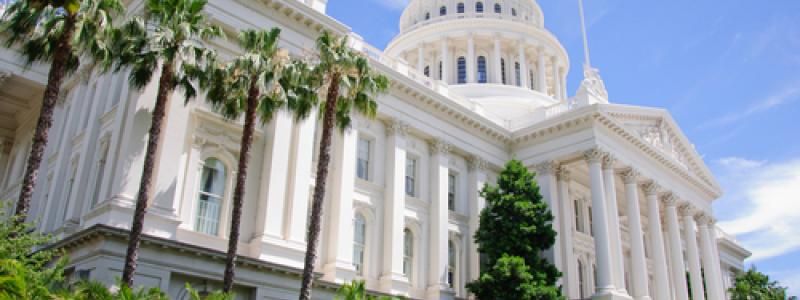California Democrats combine two separate net neutrality bills

In the biggest state in America (in terms of population), Democrats are linking two separate bills on net neutrality, in order to pass what may consider to be the most rigid net neutrality regulations in the United States. Last Monday, California state Senators Scott Wiener (from San Francisco) and Kevin de Leon (from Los Angeles) officially combined their bills to create unified legislation that should serve as a sort of standard for other states in the country to follow, in drafting their own respective net neutrality bills.
These two bills were introduced around five months ago, as a clear response to the decision by the Federal Communications Commission (FCC) -- which features a Republican majority under the administration of President Donald Trump -- to repeal the 2015 net neutrality regulations last December. Note that the repeal officially took effect last week.
By now, a lot of people already know what net neutrality is all about, which is basically just the concept of making the information superhighway a fair place wherein Internet service providers can not slow down or block access to certain web content, nor can they select which content to make easily accessible for certain clientele (especially those who can pay extra for speedy access).
Of the two net neutrality bills in California, Senator Wiener’s bill (SB 822) is said to be the more strict, mostly because it goes further than the regulations passed by the FCC back in 2015 (under the administration of then President Barack Obama). Indeed, the bill not only proposes to make the 2015 rules California law, it also prohibits broadband companies from offering sponsored content, zero rating, or other deals that could provide an economic incentive to web service providers to discriminate against Internet content riding on their networks. These deals have been found to let a company pay data fees so that specific content will not be counted against a mobile service subscriber’s data plan.
Senator Wiener’s SB 822 and Senator de Leon’s SB 460 will be combined by way of contingent enactment. What happens in this process is that both bills must pass, or neither will become law at all. The two bills have already passed the California State Senate, and in the first of two hearings in the California State Assembly (which happens this week), they will be considered.
To date, over two dozen states in America are considering passing legislation in order to save the Obama net neutrality rules. Among the most notable are New York, Connecticut, and Maryland. Meanwhile, Democrats in the United States Senate are doing their part by trying to bring back the 2015 regulations via the Congressional Review Act, which allows the US Congress 60 legislative days to overturn federal regulations.
Related Blog Articles
- Facebook introduces game shows platform, with live interactive vids
- Instagram hits 1 billion users; launches new IGTV video uploading service
- AT&T’s Unlimited &More plans and WatchTV: Everything you need to know
- Tips for achieving a smartphone detox this summer (or at least for a few days)
- Report: AT&T facilities are used for NSA surveillance program
- Venmo introduces new debit card
- After Otter Media buyout, AT&T could introduce another video streaming offering
- Instagram Stories now allows users to add songs; Meanwhile, Instagram Lite debuts
- Apple Maps being rebuilt using Apple’s own data
- Charter quietly launches website for Spectrum Mobile
Related Blog Posts
- Report: AT&T facilities are used for NSA surveillance program
- Tips for achieving a smartphone detox this summer (or at least for a few days)
- Instagram hits 1 billion users; launches new IGTV video uploading service
- Facebook introduces game shows platform, with live interactive vids
- AT&T to launch $15 per month TV streaming service


 Menu
Menu